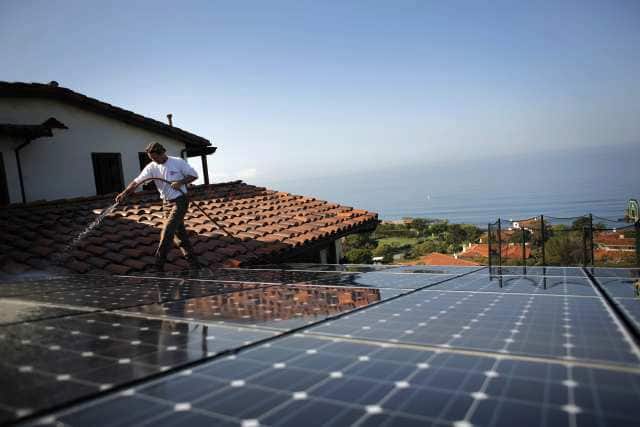Sun Shining Brighter In Copenhagen
Tuesday, Aug 20 2013

Originally posted on Huff Post Green.
What is apparent during the time we've been here in Copenhagen representing the U.S. solar industry is that the renewable energy industry has become a force in the climate debate. No longer are we relying on the environmental community to carry our message (which they have done well in the past). This is the first Conference of Parties where the "solution industries" (renewable energy) outweighed the "emitters" (fossil fuel) both in numbers and in influence.
This is the first time in the history of climate negotiations that the global solar industry has gathered together with one voice. And our message was clear - we are ready now to help solve the climate crisis.
As I listened to heads of state today talk about their commitment to battling climate change, almost to a person, they each talked about solar energy. Countries from Trinidad and Tobago to France to Croatia all stated that they can and will deploy solar as part of their climate solution. And this message is the same opinion that exists back in the U.S., with over 90 percent of the public stating that we need to use more solar energy on our homes and businesses. And the good news is that the solar industry is ready now to deploy quickly as a significant part of the solution, with the rights policies in place.
The Obama Administration took a positive step yesterday when Secretary of State Hillary Clinton announced U.S. willingness to contribute to a global effort to finance $100 billion annually by 2020 to address climate change mitigation and adaptation, a large part of which will be deployment of solar energy.
The commitment to financing climate change mitigation can start at home. As you can see in the chart below, fossil fuels - a developed, mature industry that has received decades of government support - received $72 billion in total federal subsidies from 2002 to 2008. During the same period, solar energy received less than $2 billion. This inconsistency, both with public opinion and global need, must reverse itself immediately.
The solar industry cannot deploy with the necessary speed to combat climate change without access to markets and a fair competitive environment. Climate negotiators need to return to their respective countries to continue their work by enacting smart policies at the national level. For the U.S., those policies are outlined in the Solar Bill of Rights (http://www.solarbillofrights.com). When we return home and sleep off our jet lag, we will get right back to the business of working with the Administration and Congress to move forward with policies that open up markets to solar and create much-needed jobs in the clean energy economy.
Rhone Resch, SEIA President and CEO